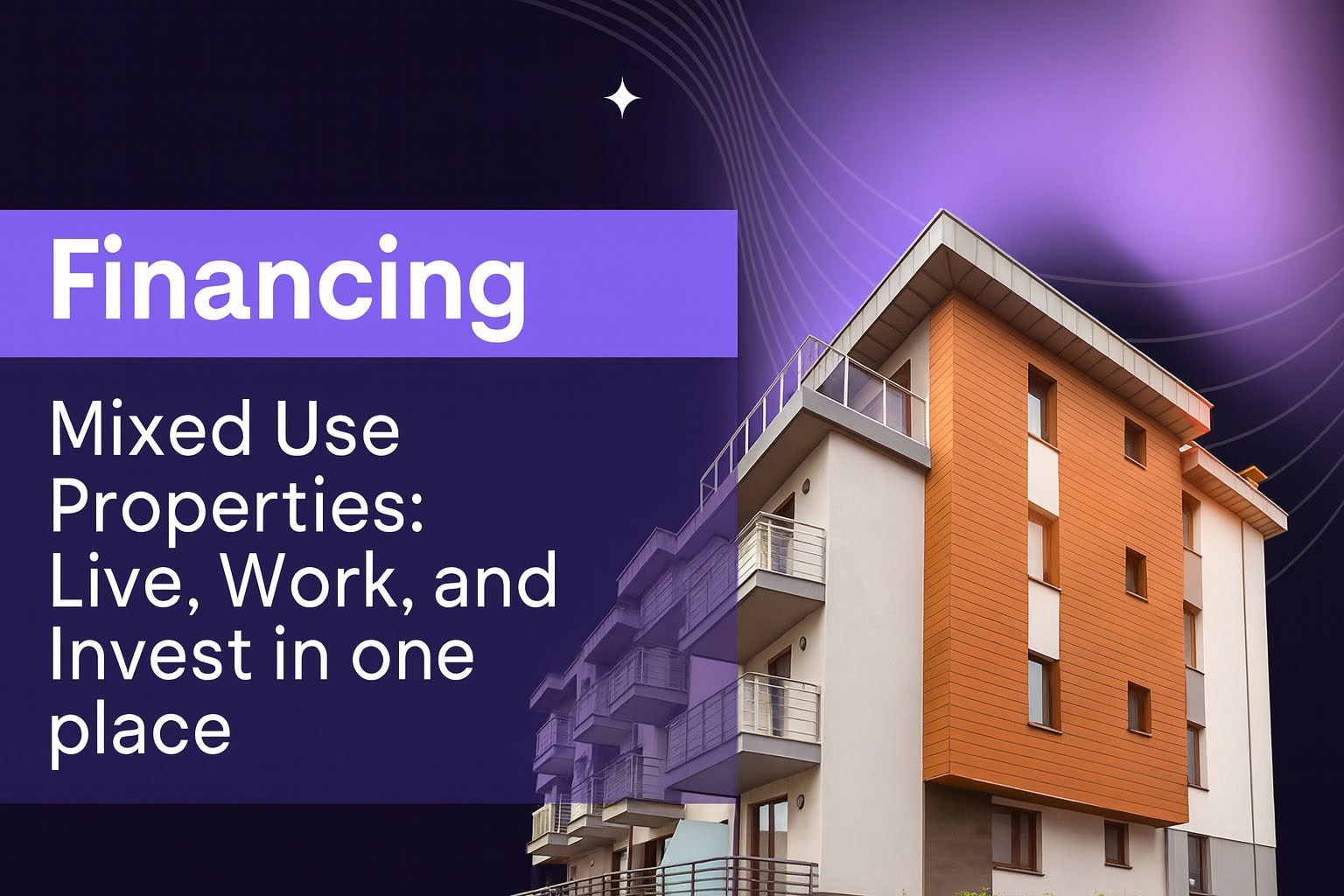Financing Mixed Use Properties: Live, Work, and Invest in One Place
 Mixed use properties are becoming an attractive option for buyers who want to combine residential, commercial, and investment opportunities all in one place. These properties can provide unique benefits, such as generating rental income while also serving as a primary residence. However, financing a mixed-use property requires a different approach than financing a traditional single-family home, and understanding the process is key to making the right decision.
Mixed use properties are becoming an attractive option for buyers who want to combine residential, commercial, and investment opportunities all in one place. These properties can provide unique benefits, such as generating rental income while also serving as a primary residence. However, financing a mixed-use property requires a different approach than financing a traditional single-family home, and understanding the process is key to making the right decision.
Understanding Mixed Use Properties
A mixed use property is one that blends both residential and commercial space within the same building. For example, you might live on the upper floor while renting out a storefront or office on the ground level. This type of property can offer convenience, additional income, and potential long term value growth.
Financing Options Available
Financing a mixed-use property is often more complex than obtaining a traditional mortgage. Lenders evaluate these properties differently, taking into account both the residential and commercial aspects. Some lenders may offer conventional financing if the majority of the property is residential, while others may require commercial loans if the commercial space is larger. Loan terms, interest rates, and down payment requirements can vary, making it important to shop around for the right lender.
Benefits of Mixed Use Investments
One of the biggest advantages of owning a mixed-use property is the opportunity to generate rental income while also reducing personal living expenses. Owners can live in one portion of the property and rent out the rest, creating a steady revenue stream that can help cover mortgage payments and other expenses. Additionally, mixed use properties are often located in high demand areas, which can lead to long term appreciation and increased property value.
Challenges to Consider
Despite the advantages, there are challenges that come with mixed use properties. Financing may require larger down payments or higher interest rates. Managing both residential and commercial tenants can be more demanding, and zoning regulations or property restrictions may apply. It is important to carefully evaluate whether the potential income and lifestyle benefits outweigh the additional responsibilities and risks.
Mixed use properties offer a unique blend of lifestyle and investment potential. By understanding how financing works, weighing both the benefits and challenges, and working with experienced professionals, you can decide if this type of property fits your financial goals and long-term plans.
